Table of Contents
Kabir Das: Life
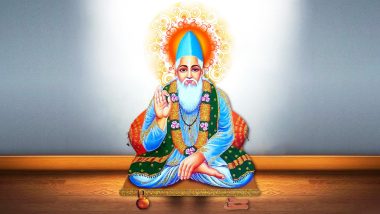
Kabir’s birth is shrouded in mystery. With the available information, he was born in 1440 A.D. Legends to speak of his widowed Brahmin ma, who is stewing to discredit and dishonor, quit him near a tank at Benares. Ironically, the honey drops trickling from the branch of a tree hard sustained the child. In the morning, a needleworker, Niru, and his woman Neema heard the weeping child and reluctantly brought it to their own home. In this manner, the Brahmin child Kabir was brought up in the family of a Muslim needleworker. Niru’s poverty prevented him from giving education to Kabir. But since an early age, Kabir snowed a remarkable inclination towards religion.
He was curious to know about the mystifications girding life and death and particularly about God. He concluded that there should be no differences among persuasions. Hence he met and mooted about religion with both Hindu and Muslim saints, and as a result, he was deeply attracted towards religion. In his youth, Kabir was deeply affected by Ramananda’s ideas, and because of this, he became his convert. Hereafter, Kabir initiated philosophical discourses on the essential principles of Hinduism and Islam. Kabir was wedded and had two sons, but though he led the life of an ordinary layman, he spent the utmost of his time in religious discussions. Gradually multitudinous people were attracted towards Kabir’s godly rates and became his epigones. Kabir’s epigones were called ‘Kabirpanthins’. Both Hindus and Muslims became his epigones. His epigones wrote down Kabir’s oral discourses, and his sermons were compound into a book known as ‘Vijak’. He composed hymns in straightforward Hindi, which were known as ‘Doha’.
Kabir tried mightily to bring about unity amongst Hindus and Muslims. Soon after, his religious views were propagated in every niche and adventurer of India. Kabir died in 1518 A.D. Legends speak that both Hindus and Muslims quibbled over his dead body. But when the cloak was removed from over his body, there were only a bunch of flowers rather than his corpse. The assembled people were taken aback suddenly by this miracle. Hindus collected some flowers and cremated them at Varanasi while the Muslims took the remaining flowers for burial at Maghar in the Gorakhpur quarter of Uttar Pradesh.
Kabir Das’s Teachings

Kabir’s philosophical tenets were straightforward. He was known as the guiding spirit of the Bhakti Movement. He preached Bhakti or ‘Devotion’ through the medium of his ‘Dohas’. Kabir’s Dohas touched everybody’s heart, and all endeared him.
Love: Love for all was Kabir’s star tenet. He emphasized that love was the only medium that could bind the entire mortal kind in an unbreakable bond of fraternity. Kabir despised the frivolity and rituals in Hinduism and Islam, and these could find no way to secure together humanity. Hence he advised all to give up abomination and perpetuate love for one and all.
God: God was the focal point of Kabir’s religion, and Kabir addressed him in different names. In his opinion, God alone was Ram, Rahim, Govind, Allah, Khuda, Hari etc. But for Kabir, ‘Saheb’ was his favorite name. He said God was everyplace and His sphere was unlimited. God was a pure, sacred being, without form, light, endless and inseparable. Hence God was all-important, and he could only be worshipped through love and devotion. In whatever name one addresses Him, God is one and has no alternate. Hence Kabir preached Monotheism. He did not believe in idol idolization. He was also against the performance of rituals and superstitions or passage to the so-called holy places.
Teacher: In Kabir’s mandate, the Teacher or ‘Guru’ has been accorded the highest position. The teacher, according to him, was the incarnation of God. Kabir had this consummation only when he came in contact with Ramananda. The guidance of a teacher-led man in the proper direction and helped him develop the right insight. Thus Kabir says, “ Guru Govind Dou Khade Kaku Lagun Pai Balihari Guru Apane Jin Govind Diyu Batal” It means —“ Both Guru and Govinda are before me. Whom shall I pay respect first? I shall pay respect first to Guru because through him I have realized Govind”.
The Path of Bhakti: Kabir stressed that the only way to attain God was through the path of Bhakti. Love and devotion would surely lead one to the ultimate attainment of Godhood. Total submission at his bases helps one to reach him, and this should be the foremost thing of all was what Kabir emphasized. No rituals or observances were demanded; only purity of heart and unyielding devotion were the two rudiments. Hence Kabir advised his followers to attain Godhood through the path of Bhakti.
Soul: Matters relating to the soul were an integral part of Kabir’s spiritual dispatches. Soul, according to him, was life, breath and knowledge. It was a part of the ultimate knowledge’. The soul itself was the creation, and it also was the creator. It was also the knowledge and the knowledgeable. The soul was the creator of all goods, and it also was the destroyer. In Kabir’s opinion, cows may be of different colors, but milk was the same. Hence, though other ideas and studies may be incorporated together, the soul remained the same. Soul was one, thick and tone-creating. It was the topmost creation of God. Kabir proffered multitudinous different views on the soul. Hence it came truly delicate to have exact defamation of the soul.
The impermanence of the world: Kabir asserted the impermanence of all goods in the world. All living and non-living goods like insects, brutes, trees, gutters, mountains and mortal beings are only temporary, and all would cease to live someday. He advised his followers not to lament the death of a commodity that was bound to die. Hence he emphasized that in this impermanent world, the only verity and endless reality was God, who could study Bhakti. Consequently, though different ideas and studies may be incorporated together, the soul remains the same. Soul was one, thick and tone-creating. It was the topmost creation of God. Kabir proffered multitudinous different views on the soul. Hence it came truly delicate to have exact defamation of the soul. Thus, Kabir writes Chalti Chaki dikhakari Diya Kabiri roi Dau ke Bich Sabita Bacha no koi” It means “The Sky and Earth are like two circles moving ceaselessly. Those who will come between these two circles must die.”
Salvation: Liberation or deliverance was another contention of Kabir. Liberation inferred freedom from the stings of life and death. Liberation, according to him, was a state of “fearlessness”. By citing an illustration, he said just as water flows out of a hole in a pot and mixes with the water outside, and also, after death, the individual soul moves out of the gross body to combine with the cosmic soul. This is liberation.
An antagonist of the estate system and evil practices: Kabir was a great opponent of the estate system. He stressed that in God’s creation, all were equal. He advised his followers to give up analogous inhuman practices like untouchability, heartstrings of high and low etc. He further opposed the idolization of monument images or the adoration of different gods and goddesses and was against religious rituals and observances. Kabir denounced the estate system. He said that there should be no discrimination based on the estate. He rejected the authority of both the Veda and the Koran. He laid great emphasis on the equality of men. He preached a religion of love that aimed at promoting orchestration amongst all castes and creeds.
Nature of People: Kabir’s homilies were predicated on reality. He directed out that people appealed to God only when they were in trouble, but no bone remembered Him in good times. But he who remembers Him in happiness and in good times no way faces anguish.
Nature of Saint: A saint, according to Kabir, should give up all trivialities and save only the kernel of all knowledge. All knowledge and enlightenment were within one’s tone, and one had to seek them out. To attain the purity of the technique, one need not go to the temple or temple. Kabir explained all analogous philosophical tenets through his ‘Dohas’ or sorting couples. The following ‘dohas’ of Kabir contain some essential aspects of his training ” O seeker, where dost thou seek me, Lo, I am beneath there, I am neither in temple nor in temple, I am neither in Kaaba nor in Kailash, Neither am I in observances and observances, ‘Nor in yoga or repudiation. If thou art a true seeker. Thou shall at formerly see me. Thou shall see me in a moment of time. O Sadhu, God is beneath all breaths.”
The people madly accepted Kabir’s ideas, and Kabir’s preaching’s sincerely told the religious reform movement in medieval India. The Bhakti movement factory authentic expression through Kabir.
Central Ideas of Kabir Das

The central training of Kabir is straightforward. (1) He laid stress ‘Bhakti’. (2) He said that through Bhakti or devotion, one would come nearer to God; one could be released from the cycle of birth and death only by sincere love and devotion to God, which he called Bhakti. (3) He unpretentiously tried to emphasize the orchestration of Islam and Hinduism by preaching those graces which were common to both persuasions. (4) He made no distinction between Hindus and Muslims. (5) To Kabir Allah and Rama were but different names of the same supreme being. To him, Hindus and Muslims were “ pots of the same complexion”. (6) According to Kabir, deliverance could be attained by doing good deeds or employing Bhakti or sincere devotion to God.
He was full of modesty and the first saint to attune Hinduism and Islam. Kabir’s training is contained in his Dohas. The spiritual songs or ‘bhajans’ of Kabir are called Kabir Doha. Those Dohas are in the form of short poems in the Bijaka, sacred book of the Kabir Panthers, the followers of Kabir. Kabir was an establishment believer in the orchestration of God. He preached his training among the people in Hindi. His spiritual bhajans or Dohas appealed most to the ordinary men, Hindus as well Muslims. The communication and the movement of Kabir can be easily gathered from his‘Dohas1, which denounce rituals and superstitions. Kabir said, “ If by worshipping monuments one can find God, I shall worship a mountain.”
Still, the frogs who bathe continually would attain it, If, by immersion in the water, deliverance be attained. Like the frogs, so are these men, again and again, fall into the womb”. He was a bold cleric. He said this to the Hindus and Muslims Still, also to whom does this world belong?” ” If God is within the synagogue. To Kabir, Hari does not live in the east and nor Allah in the west. They are one and live inside the human heart. He advised everyone to seek verity within their hearts.
Kabir condemned pride and egotism. He wanted man to give up pride, outrage, hostility and pride. He appreciated brotherhood, which ultimately directed toward the main objects “ Love of God” and “ Love of humanity”.
Kabir Das in Contemporary Times
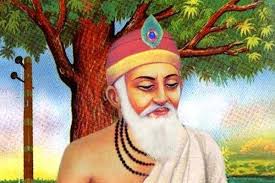
Kabir was strictly against the practice of dissimulation and did not like people maintaining double morals. He always preached to people to be compassionate towards other living beings and practice true love, which is kindly missing nowadays. He urged the need to have a company of good people that stick to values and principles. The devilish materialism of the world embroils moment’s world down. The deep-seated profitable inequalities of the world are leading to stewing disgruntlement around the globe. Kabir’s principles of compassionate ethics should be made applicable in today’s time.
Corruption is the deep-seated problem in India that is eating away the vitals of the nation. Emphasis on honest livelihood by Kabir, if understood in the right spirit, will change the individual perspective. Communalism is lurking around in the Indian societal terrain; the essential syncretism and universalism, which are part of Kabir’s, can help in working this issue to a certain extent.

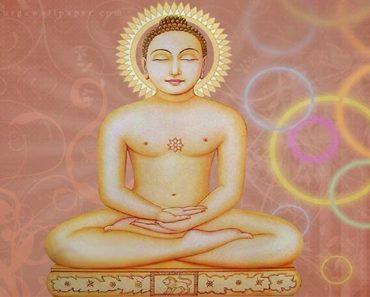
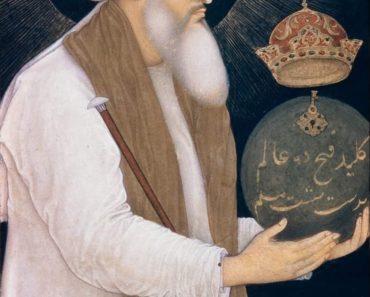
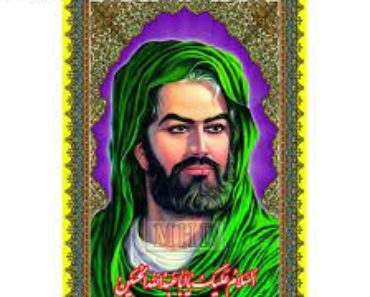
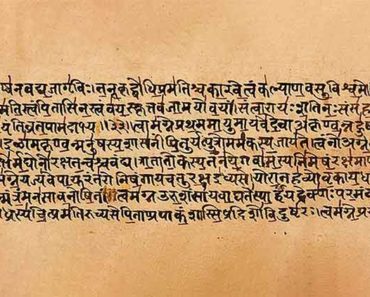
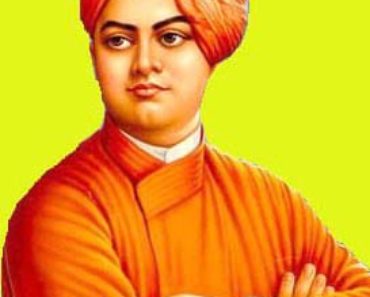
Well written .